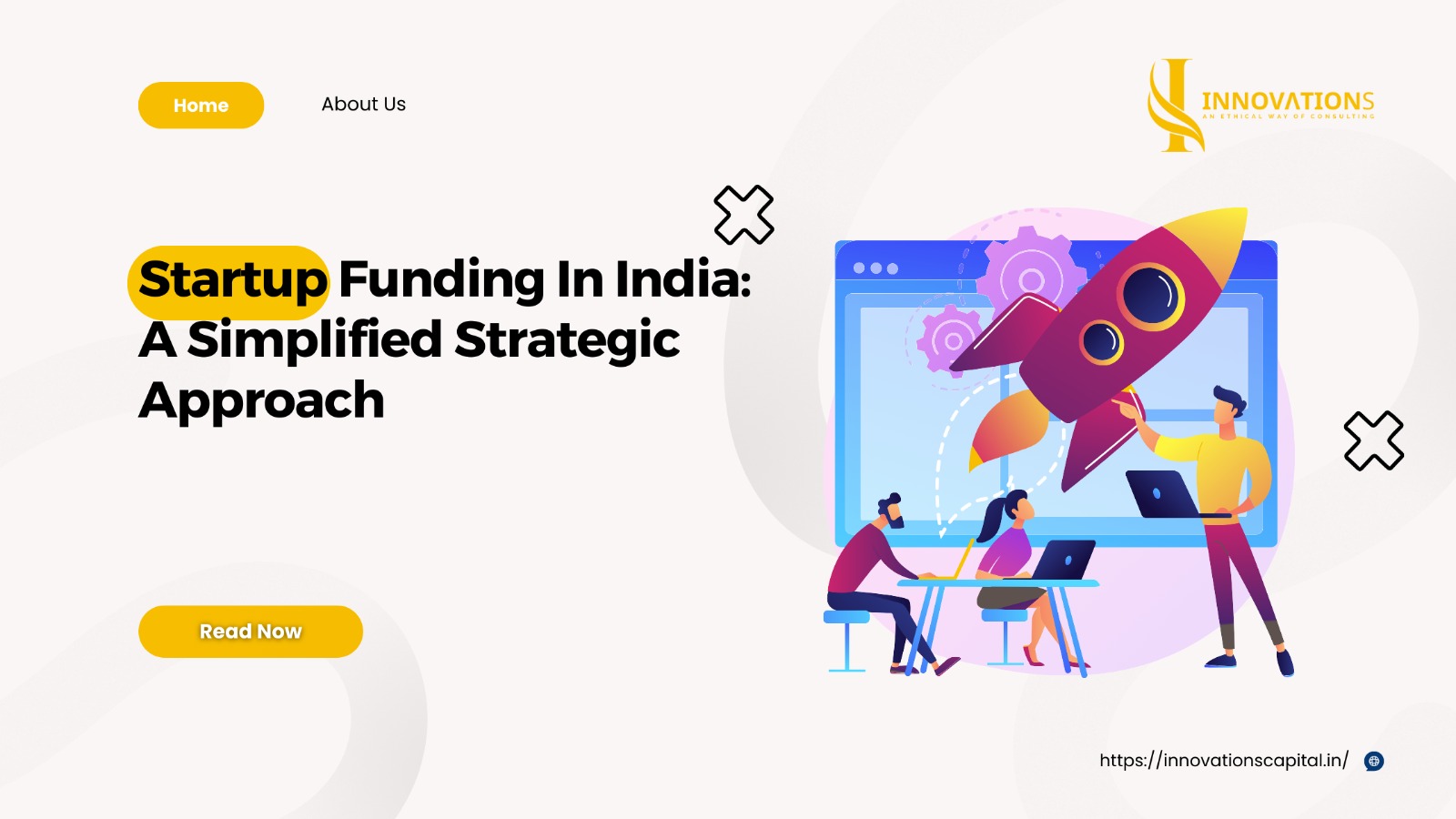Introduction:
India’s startup ecosystem is booming, with over 80,000 active startups as of 2023, making it the world’s third largest after the US and China. This translates to an impressive 1,300 new tech startups being born every day – showcasing the vibrant entrepreneurial spirit in the country. However, funding remains a crucial hurdle for these young ventures.
To illustrate this challenge, consider the data point that while India saw a record-breaking $42 billion in venture capital funding in 2021, the average deal size still lags behind global averages, indicating a need for more accessible and diverse funding sources for early-stage and mid-stage startups.
Startup funding is like fuel that allows great ideas to take off. However, the Indian startup funding landscape can be complex to navigate. It includes angel investors, VC firms, private equity firms, and more. Many promising startups fail due to lack of access to the right funds at the right time.
This blog aims to demystify startup funding in India for those looking to tap into schemes like Startup India or attract investors and venture capital. We will discuss the various funding sources available. We’ll explore strategies to raise funds at different startup stages. We’ll cover key considerations for investors. We’ll also share tips to develop an effective funding pitch.
Whether you’re an entrepreneur starting your funding journey or an investor eyeing the high-growth Indian startup segment, there are valuable insights here. They will help streamline your approach.
What is Indian Startup Funding Landscape?
India has emerged as the 3rd largest startup ecosystem globally, behind only the US and China.
Key industries driving growth in Indian startups include financial technology, education technology, healthcare technology, e-commerce, aggregator apps, software-as-a-service and more. India’s large population size, increased internet/smartphone penetration and various supporting government initiatives like Startup India are catalysing startup growth.
However, Indian startups face several challenges in securing sufficient funding due to:
- Lack of awareness about different funding options: Many entrepreneurs are unaware of the nuances of funding rounds like seed funding, Series A, Series B etc. They also have limited clarity on the eligibility criteria for different stages.
- Stringent eligibility criteria set by investors/VCs: Factors like traction, scalability, team credentials etc. have high importance for investors before committing capital. This sidelines many early-stage startups.
- Limited access and connect with angel investors and VCs: Tier 2/3 cities in India have a massive untapped startup potential. But startups here have less access to investors compared to major metros.
Addressing these challenges can unlock tremendous funding potential for Indian startups to fuel their ambitious growth plans.
Types of Startup Funding In India

The types of funding for startup india ecosystem in India has rapidly evolved over the past decade. Entrepreneurs today have access to diverse sources of funding across various stages:
- Seed Funding
This early capital helps invest in startups conduct market research, product development and build a core team. Seed funding usually ranges from $100,000 to $2 million and comes from the founders’ personal savings, friends/family, incubators, and angel investors.
- Angel Investors
Angel investors are wealthy individuals who invest their own money into early-stage startups in exchange for ownership equity. Apart from capital, they also provide mentoring support. Angel networks are also gaining prominence in India.
Angel investors and venture capital firms are critical sources of funding for early-stage startups and high-growth startups in India.
- Venture Capital
Venture Capital firms raise pools of capital from limited partners, which they invest into high-growth-potential startups in exchange for equity. The ticket size ranges from $2 million onwards. VC funding is suitable for the expansion/scaling stage.
- Private Equity
PE firms make large investments ($10 million+) in mature startups which need funding for specific purposes like acquiring a competitor or entering new markets.
Rising disposable incomes, government startup policies, tax exemptions and relaxed FDI norms have led to an exponential increase in funding sources over the past 5 years. This speaks well for Indian startups aiming for rapid growth.
Key Factors Influencing Startup Funding in India:
- The government has introduced various supportive policies like Startup India, Fund of Funds, tax exemptions, subsidized infrastructure and fast-tracked licensing. These encourage both local and foreign investors.
- Angel investing has grown 4x from $1.7 billion in 2011 to over $7 billion in 2020. Top business leaders and successful founders actively back early stage startups. Accelerators have also boosted angel activity.
- Emergence of online crowdfunding platforms like Ketto, Wishberry, Impact Guru is allowing startups to raise smaller seed rounds through public campaigns. This democratizes early stage capital access.
- These developments have created a robust, evolving funding environment for Indian startups across seed to pre-IPO stages. The funding outlook remains very positive.
Strategic Approach to Indian Startup Funding
Crafting a solid pitch deck and business plan is key to attracting investors for startups in India across various stages.
You can simplify raising startup funding In India by taking a structured strategic approach across these key areas.
- Identifying Funding Needs
Be clear about exactly how much capital you need, what milestones it will help you achieve and have detailed financial projections. Investors want to see there is a well-thought plan for deploying funds towards a promising ROI.
- Building a Solid Business Plan
Your business plan is the pillar for securing startup funding. It should clearly convey your solution’s uniqueness, addressable market, business model, go-to-market strategy, traction, future milestones and how you will use the investor capital towards sustainable growth.
- Pitching to Investors
Master the art of pitching as interactive storytelling, not just a deck of slides. Demonstrate your market opportunity, product demo, traction, future roadmap and make a strong case for how the investor can multiply returns by partnering with your growth journey.
- Networking and Building Relationships
The startup ecosystem thrives on partnerships and relationships. Proactively network with investors, entrepreneurs, industry experts and leverage events like startup summits. Maintain strong communication and update existing investors of key milestones. This builds credibility for attracting larger rounds.
By adopting this strategic approach, Indian startups can simplify the funding process, accelerate growth and achieve scale efficiently.
Crafting a Winning Funding Strategy

Getting fund for startup involves more than just pitching to investors. Entrepreneurs need a well-defined funding for startups strategy aligned with their business goals to maximize success.
Key Steps to Craft a Funding Strategy for Startups
- Assess Capital Requirements
Be clear on exactly how much money you need to achieve the next major milestone – don’t ask for too little or too much.
- Identify Target Investors
Research thoroughly to find investors that fund your industry/business model and have portfolios aligned to your vision.
- Prepare Pitch Materials
Create a solid deck highlighting your solution, traction, future roadmap, and projected returns. Demonstrate how you will deploy funds smartly.
- Start Relationship Building
Use your existing network for introductions to prospective investors. Attend events that investors frequent. Maintain active communication even if fundraising is months away.
- Evaluate Funding Options
Weigh pros and cons of funding sources like angel investors, VC firms, crowdfunding platforms etc. Factor in returns expected, ability to guide strategy and additional support offered.
With a strategic approach across these steps, startups can identify the right investors, convey their long-term vision clearly and ultimately have a higher chance of securing the best deals.
Case Studies
Ola Cabs – Raised Over $3.8 Billion
The ride-sharing platform revolutionized urban mobility in India. Their funding journey illustrates how having a compelling vision can attract top investors and capital:
- Early rounds from angel investors like Rehan Yar Khan, Anupam Mittal saw potential and put seed capital.
- Series A-$5 million from Accel Partners in 2013 – their US connections and experience with Facebook reinforced belief in the opportunity.
- Big marquee investors like Softbank, Tiger Global, Tencent invested over $1.3 billion in subsequent rounds as Bhavish Aggarwal demonstrated execution excellence with rapid growth.
This showcases the immense confidence institutional investors place once startups build robust traction and demonstrate potential for outsized category-defining returns.
Dunzo – Raised $240 Million
The hyperlocal delivery player found niche white spaces addressing instant delivery for forgotten essentials.
Key highlights:
- Seed funding from Blume Ventures, Aspada, Bessemer helped launch operations.
- Backing from Google, Lightbox demonstrated investor belief in the founding team’s tech capabilities.
- Dunzo’s capital efficiency despite Covid disruptions reinforced confidence in unit economics and approach.
Their strategic funding playbook aligning early niche product-market fit with strong execution paved the way for massive growth capital.
Ola, Dunzo, and many more Indian startups demonstrate that the right vision, execution, and funding strategies can unlock significant capital.
Challenges in Startup Funding In India
- Despite India’s thriving entrepreneurial landscape, startups face several roadblocks in securing requisite funding:
- Finding the Right Investors: With numerous angel networks, VCs and PE firms, identifying the ideal investors aligned to your industry and stage is difficult.
- Standing Out: Investors receive hundreds of funding requests. Convincing them why your startup is worth the investment is challenging.
- Geographic Barriers: Startups in Tier 2/3 cities lack access to funding compared to major metros.
- Lack of Experience: First-time entrepreneurs often struggle with perfecting their pitch deck, financial projections and showcasing traction in the best light.
Strategies to Overcome Funding Obstacles
- Attend startup events to expand your network and directly engage investors.
- Leverage LinkedIn to identify operational investors in your city and sector to improve access.
- Join an accelerator program to receive funding readiness support on pitching, business models etc.
- Develop an advisor board with industry veterans who can guide your funding strategy using their investment experience.
- Leverage personal connections for introductions and referrals to compatible investors in your network.
With determination and the right strategies, Indian startups can overcome the funding challenges and attract investor capital to unlock their ambitious visions.
Conclusion:
India’s thriving startup ecosystem shows immense potential, but navigating the funding landscape remains a key challenge for entrepreneurs. Adopting a strategic, structured approach is vital for securing the necessary startup capital to fuel your vision.
As evident from leading startups like Ola and Dunzo, backing from marquee investors acts as a catalyst to fuel exponential growth. Their funding success illustrates the rewards of crafting a solid business plan to get business funding for startup, building robust traction, identifying compatible investors, effectively communicating your vision and nurturing relationships across the startup community.
Platforms like Innovations Venture Studio help startups on their funding journey – from getting funding via Startup India to securing venture capital for scale.
Aspiring founders must invest significant time upfront to build funding readiness across these areas. Seek out experienced mentors who can provide invaluable guidance on designing the ideal funding pitch deck, targeting the right investors, responding to tough questions and negotiating favorable term sheets.
Tap into platforms like Innovations Venture Studio that provide end-to-end support in developing a structured funding strategy aligned with your growth objectives. Collaborating with seasoned experts maximizes your chance of unlocking access to growth capital in India’s competitive environment.
The future looks tremendously promising for Indian startups across sectors to build global innovation powerhouses that positively impact millions of lives. India is expected to surpass other countries and claim the title of the second biggest startup ecosystem, boasting over 100 unicorns by 2025.
Optimism is sky high that we will see the emergence of many more category-defining Indian startups over the coming decade. The time for ambitious Indian entrepreneurs to convert their promising ideas into funded, high-growth startups is here and now.
If you are an entrepreneur aiming to secure startup funding in India and accelerate your growth, get in touch with Manish Khurana or Innovations Venture Studio today to accelerate your funding journey. With their deep expertise in the Indian startup ecosystem, extensive network of investors, and proven track record of supporting promising ventures, Innovations Venture Studio can provide invaluable guidance and resources to help you navigate the fundraising process effectively.

